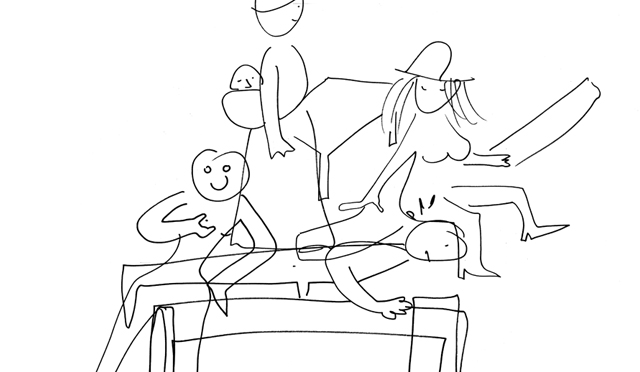Search
To search for an exact match, type the word or phrase you want in quotation marks.
A*DESK has been offering since 2002 contents about criticism and contemporary art. A*DESK has become consolidated thanks to all those who have believed in the project, all those who have followed us, debating, participating and collaborating. Many people have collaborated with A*DESK, and continue to do so. Their efforts, knowledge and belief in the project are what make it grow internationally. At A*DESK we have also generated work for over one hundred professionals in culture, from small collaborations with reviews and classes, to more prolonged and intense collaborations.
At A*DESK we believe in the need for free and universal access to culture and knowledge. We want to carry on being independent, remaining open to more ideas and opinions. If you believe in A*DESK, we need your backing to be able to continue. You can now participate in the project by supporting it. You can choose how much you want to contribute to the project.
You can decide how much you want to bring to the project.

Once again, the summer months are filled with artistic events held throughout Europe, and at A*Desk we have decided to dedicate the month of July to review the most outstanding. The Berlin Biennale, the itinerant Manifesta in Palermo and the Venice Architecture Biennale coincide this year with other periodical events such as the 13th Baltic Triennial that for the first time is staged in the three regional capitals. Art critics, curators, dealers and artists devote their summer holidays to visiting these events, blurring even further the border between free time and work that characterises employment in the art field.
María Muñoz has gone to Palermo to offer us a survey of the 12th itinerant European biennial which this year is devoted to landscape, nature and the idea of gardens. As reported for us by Àngels Miralda, the RIBOCA Riga Biennale and the Baltic Triennial also focus on environmental issues from the angle of change and of the relationship between human beings and the Earth. Sonia Fernández Pan and Carolina Jiménez strolled through the tenth Berlin Biennale conceived as a rejection of the heroism and paternalistic academicism characterising such events when they try to deal with themes of post-colonialism and subalternity. Last but not least, organised in national pavilions, the Venice Architecture Biennale tackles these same issues starting from the idea of desire which each country, as we learn from Alberto Ortega, apprehends and therefore reacts to in its own way.
Somehow, in the same spirit of the last documenta, we observe a shift in the art world, yet it is not clear towards which new direction. Artists seem to be distancing themselves from the ideas of stardom and glamour, of at for art’s sake, and paying increasing attention to pressing political and environmental issues, suggesting different rhythms and ways of doing and seeing, even calling into question the idea of ‘centre’. The international art world, through such mega-events, appears as a boundless space in which there is room for everyone; a globalised world which, on paper, is open and inclusive, at least from a geographical point of view. Yet we also know, as remarked by Juanjo Santos, María Virginia Jaua and Gerardo Mosquera, that nationality is still important and that many of these events explore the local, the site-specific and the autochthonous as a reaction to the homogenisation produced by globalisation or else in search of distinction. May this survey provide food for summer thought.

A*DESK is a critical platform focused on publishing, training, experimentation, communication and dissemination in relation to contemporary culture and art, which is defined by transversality. The starting point is contemporary art, because that is where we come from and this awareness allows us to go much further, to incorporate other disciplines and forms of thought in order debate issues that are relevant and urgent for understanding our present.
"A desk is a dangerous place from which to watch the world" (John Le Carré)